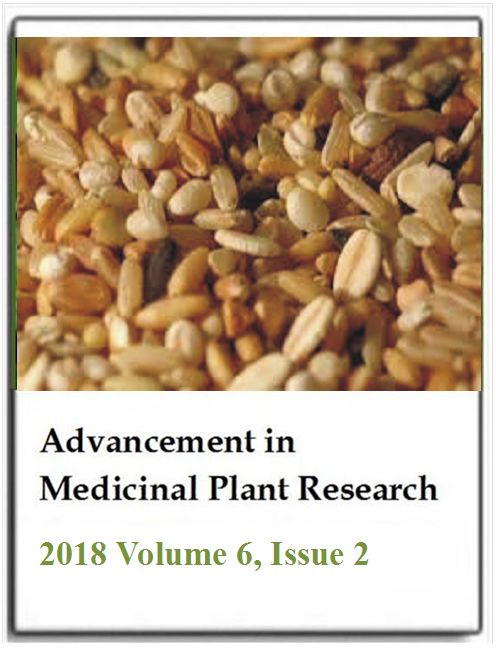A pilot study of a natural fiber complex IQP-AK-102’s effect in reducing appetite and caloric intake in overweight subjects
Ralf Uebelhack, Udo Bongartz, Barbara Grube, JooLian Khoo and Pee-Win ChongAdvancement in Medicinal Plant Research
Published: April 23 2018
Volume 6, Issue 2
Pages 19-25
DOI: https://doi.org/10.30918/AMPR.62.18.012
Abstract
A proprietary fiber complex, IQP-AK-102, consisting of glucomannan, kappa-carrageenan and xanthan gum, has been shown to reduce body weight in a double-blind, randomised, placebo-controlled clinical trial. It was postulated that IQP-AK-102 promotes weight loss through enhancing satiety, increasing gastric distension and delaying gastric emptying. Therefore, the aim of this study was to examine if appetite reduction through above-mentioned mechanisms is underlying the efficacy of IQP-AK-102 for body weight loss. Thirty-six healthy overweight adults (BMI 25-30 kg/m2) were administered 2 capsules of IQP-AK-102 three times daily for 4 weeks, after a 2-week run-in phase. Visual analogue scales (VAS) and Haber (hunger/satiety) scale were used to evaluate the appetite sensation. All measurements were assessed 3 days a week during the run-in phase as well as in the first and last week of the treatment period. The scales were completed before breakfast (at time -30 and 0 min) and after breakfast (at time 15, 30, 45, 60, 90, 120 and 180 min). Additionally, food intake was also recorded in a food diary. The appetite evaluation study showed that IQP-AK-102 reduced both the appetite sensation and the mean daily caloric intake significantly after 1 week and 4 weeks of intake. IQP-AK-102 was well tolerated throughout the study duration, with no product related adverse effects reported. These results suggest that IQP-AK-102 reduces appetite and caloric intake and thus, can be considered a natural and safe intervention for promoting weight loss.
Keywords: IQP-AK-102, dietary fiber, appetite reduction, satiety, obesity, weight loss.
Full Text PDFThis article is published under the terms of the Creative Commons Attribution License 4.0

